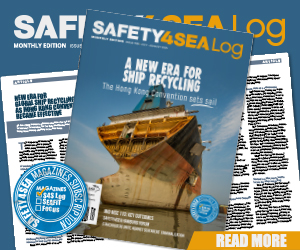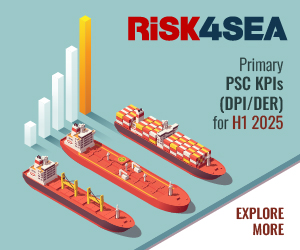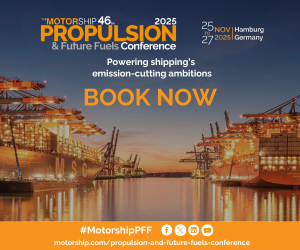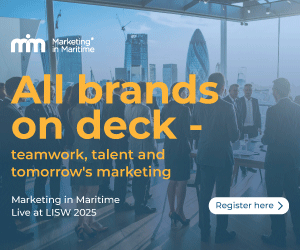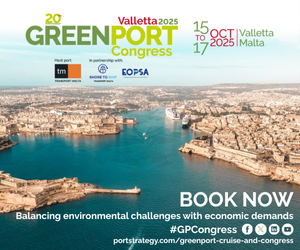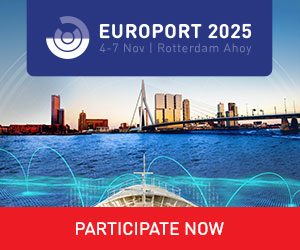Uncover the most important maritime news today. Navigate through insights on industry changes, shipping news, and trends.
UGS Annual Report: Greek shipping remains a global leader
The Union of Greek Shipowners has published its latest Annual Report highlighting the continued growth, global impact, and environmental progress of Greek and international shipping in 2024.
Read moreDetailsLIFE ONBOARD
SEAFIT
SEAFiT Barometer Survey highlights a mindset shift: Wellness is seen as culture, not just care
The 2025 SEAFiT Barometer Survey, an industry-wide survey conducted by SAFETY4SEA during the first half of 2025, reveals a significant shift in how maritime professionals - both at sea and ashore -perceive wellness.
Read moreDetailsMelatonin on the menu: Foods for better sleep
Did you know that what you eat can directly affect how well you sleep? Nutrition and sleep are closely linked, and while no single food is a cure-all for insomnia, certain foods contain nutrients that support healthy sleep patterns; especially those that naturally boost melatonin.
Book Review: Feel grounded and think positive in 10 simple steps
Admiral William H. McRaven’s “Make Your Bed” is a powerful book, drawing lessons learned from the author’s own military experiences and turning it into practical guidance for anyone facing personal or professional challenges.
Mindfulness and social media: M.I.N.D. your media
Practicing mindfulness on social media can help reduce its negative effects. The M.I.N.D. framework, introduced by Brit Heiring, can serve as a practical guide for more intentional digital engagement.
INTERVIEWS
REGULATORY UPDATE
Panama to no longer register certain vessels over 15 years old
The Panamanian Ship Registry will no longer register oil tankers and bulk carriers over 15 years old to enhance fleet performance, reduce detentions, and block shadow fleet vessels.
Read moreDetailsIndia prohibits maritime training by foreign entities
The Indian Directorate General of Shipping (DGS) has announced the prohibition of maritime training in India by foreign administrations and entities without prior approval of the Director General of Shipping.
USCG issues guidance on alternative fuel bunkering
USCG informs that, in the absence of specific prescriptive regulations for LNG and alternative marine fuel bunkering, a comprehensive bunkering proposal and risk assessment should be submitted prior to any such operation.
Panama warns operators to follow UN sanctions on North Korea
Panama has warned all stakeholders in its shipping registry to strictly comply with UN sanctions against North Korea.
Malaysia closes anchorage to curb illegal activities
On 31 July, the Singapore Shipping Association (SSA) announced that Malaysia has closed the anchorage and lay-up area at Tompok Utara, near the eastern entrance of the Singapore Strait, also known as the East Outer Port Limits (EOPL).
Ukraine to launch remote SID processing for stranded seafarers
Ukraine is set to launch a pilot scheme allowing the remote processing of Seafarers’ Identity Documents (SID) for crew stranded abroad.
IN THE CURRENT
Voyaging to perfection: The ongoing evolution of NavStation
Timo Essers, e-Navigation Director at NAVTOR, explains the philosophy driving the continual evolution of NavStation, while outlining the headline updates to the soon-to-be released NavStation 6.4.
Read moreDetailsInnovating ocean safety: Intellian’s unified vision for connectivity and GMDSS
In the intricate world of maritime operations, safety is paramount. It’s a commitment woven into every journey, from critical cargo transports to the leisure of cruise liners, argues Jon Harrison, Vice President of Channel & Strategic Partnerships, Intellian.
Read moreDetailsWatch
SHIPPING 2030
DNV: Alternative fuel vessel orders in July continue to show uptick
The global shipping industry continues to accelerate its transition toward alternative fuels, with new data from DNV’s Alternative Fuels Insight (AFI) platform revealing a notable uptick in vessel orders during July 2025.
Read moreDetailsGMS: Shipping and ship-recycling are going down a rabbit hole
According to GMS' latest report, the shipping and ship-recycling worlds spiral into chaos amid a global economic turmoil landscape.
Port of Barcelona and Shanghai to develop green & digital corridor
The Port of Barcelona and Shanghai International Port Group (SIPG) announced on 4 August the signing of an agreement to intensify connections between both ports in the areas of digitalisation, standardisation and decarbonisation of maritime transport.
GMS and Liberian Registry issue first IRRC under HKC
GMS and Liberian Registry announced the issuance of the first International Ready for Recycling Certificate (IRRC) following entry into force of the Hong Kong Convention.
Pacific Environment: Arctic’s black carbon emissions remain unregulated
A new report by Pacific Environment presents the argument for why the International Maritime Organization (IMO) should take immediate action to curb shipping's black carbon emissions from the Arctic.
AMSA: Improving shipping waste management at Australian ports
A recent trial by the Australian Maritime Safety Authority (AMSA) and the Department of Agriculture, Fisheries and Forestry (DAFF) is expected to support policy changes in Australia that will see more options for recycling waste from international ships visiting domestic ports.







































